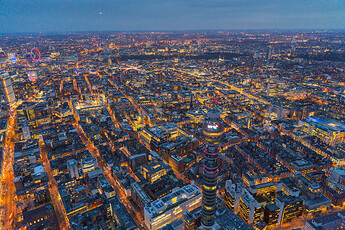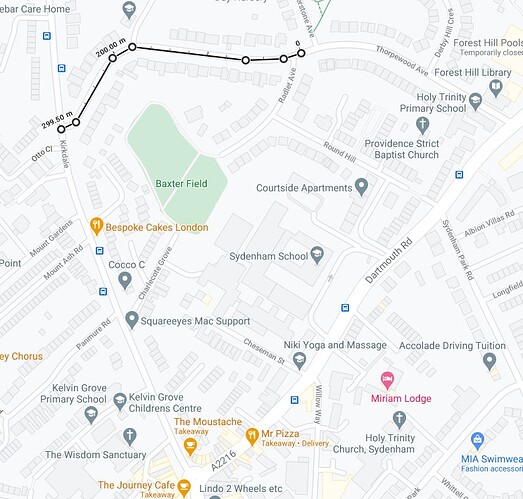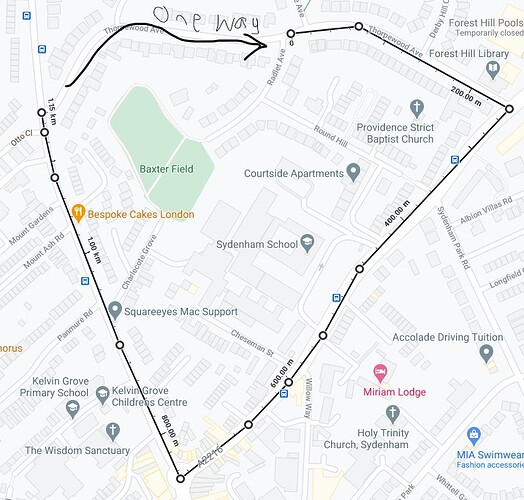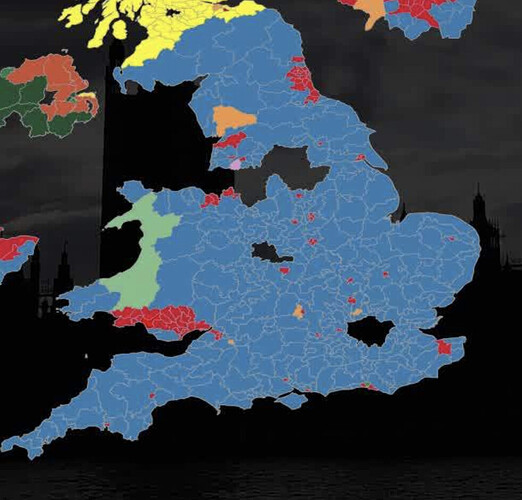Is it certain the ulez will increase traffic on the border? I accept it could, and can see the logic, but equally I expect the ulez will mean some journeys that previously used the south circular as a means to get to a road moving northwards now wont happen, or will use public transport / bicycle, so not only will those vehicles be off the roads in the ulez, they also won’t be using the south circular now.
Really what we’re concerned about is a subset of vehicles: those that are making a journey only from outside the ulez to outside the Ulez + those that would benefit from cutting through the ulez (as an aside, how many is this? My east-west drives always seem to put me on the south circular anyway…) + those that aren’t exempt from the ulez (4 out of 5 cars already are) + those that don’t change vehicle as a result of the ulez + those that choose not to pay and use a longer route instead. All those factors must simultaneously apply before a vehicle might be decamped on the south circular as a result.
On the flip side, south circular traffic could be reduced for every journey where: part of the journey normally uses the south circular + the start or end or stop off is in the ulez + the vehicle is older/more polluting and attracts a ulez charge + the driver chooses not to make the journey or not use a private vehicle. Or that person might switch to a less polluting car so they can continue as before in a less damaging way.
If the volume of vehicles in set A is greater than B then yes, there’ll be an increase in traffic on the south circular at least at first, but if more journeys are replace with alternative means then there could be a reduction. I have no idea what the outcome will be and would also be interested in projections, but I’m not sure we should be certain that the net change will be one way or the other at this point.
Edit:
As a slight aside, I’m struck by the fact that an article about the tragic death of a girl due to pollution has elicited such a reaction against measures to cut pollution. I totally understand the concern that this could move the problem elsewhere, and I hope more data will be available, but I don’t see how that merits such a negative reaction to this scheme.
I also think, rereading the above, comments like this are in poor taste and wrong:
Not only does that come across as hugely insensitive, for all we know many, many lives have been saved within the ULEZ as a result of the cut in pollution. For those looking for stats the below refers to the realised benefits, and I think it is safe to assume that the area within the ULEZ is larger than the line around the periphery.
Traffic emissions are the biggest source of poor air quality. The world’s first 24 hour Ultra Low Emission Zone (ULEZ) was implemented in central London in April 2019, and has seen the number of vehicles meeting the tough emission standards rise from 39% in February 2017* to more than 80%. It has also had a transformational impact on air pollution, contributing to a 44% reduction in roadside nitrogen dioxide within its boundaries. That’s why The Mayor of London and TfL are helping to improve air quality across the Capital, by making our transport greener and expanding the Ultra Low Emission Zone.
And for those that would like to see alternative means of of pollution reduction (but also despise anyone but the direct beneficiaries funding projects, and realise we live in a real world with no magic money trees) then good news, because the ULEZ will make this possible:
Where the money goes
Any money received from the ULEZ will be reinvested into improving the transport network - including its cycleways, buses and Tube - and helping to improve London’s air quality. We don’t make a profit and are committed to reducing our costs.
I hope our @Lewisham_Councillors can help us to ensure that SE23 gets a fair share of this money to offset any disproportionate downsides coming our way, but aside from that a lot of the views in this thread are pure NIMBYism, and at times totally contradictory. We can’t have it both ways, we either have to cut pollution or accept the consequences, but neither option is free.






















